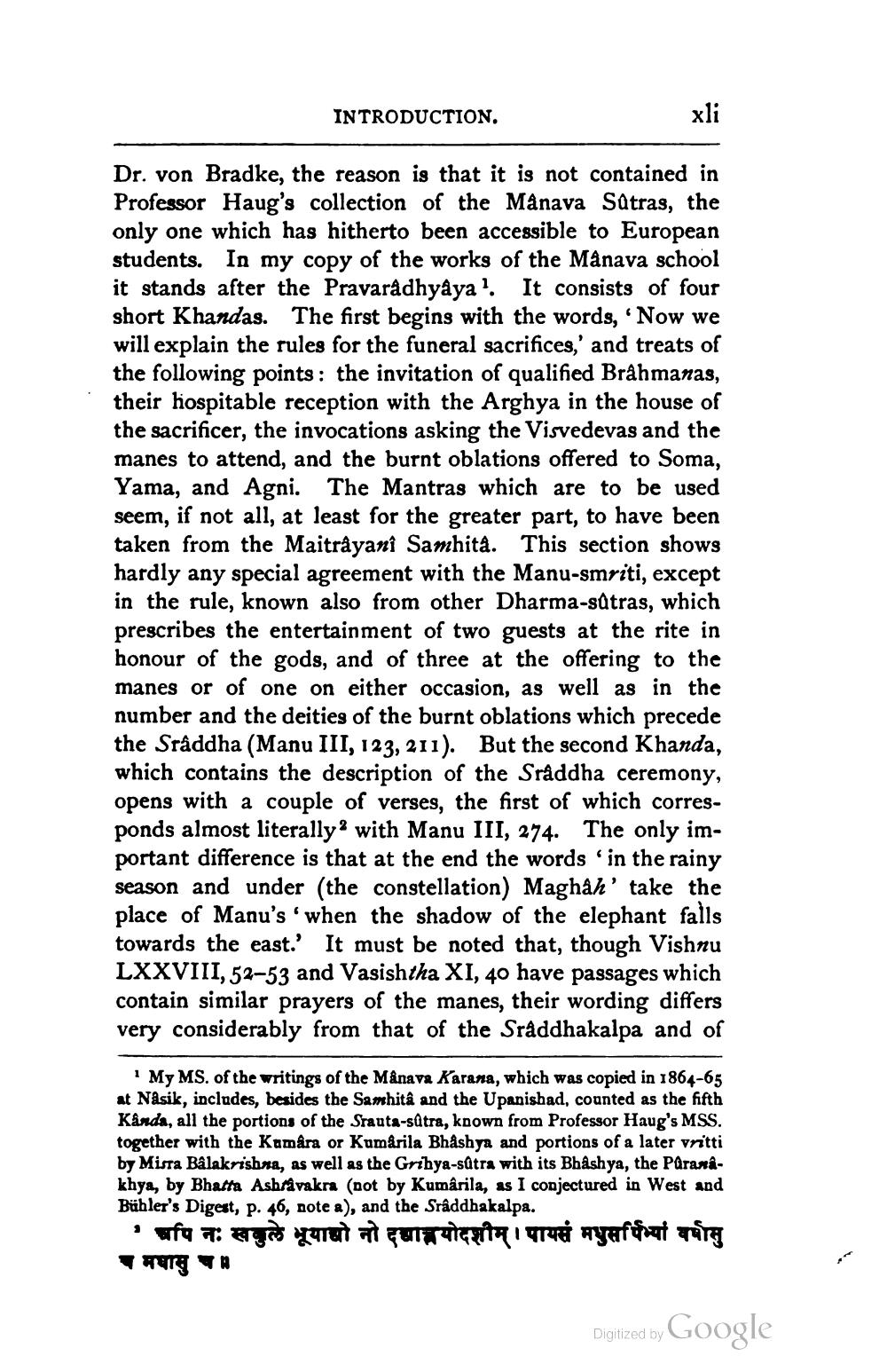________________
xli
Dr. von Bradke, the reason is that it is not contained in Professor Haug's collection of the Mânava Sûtras, the only one which has hitherto been accessible to European students. In my copy of the works of the Mânava school it stands after the Pravarâdhyaya1. It consists of four short Khandas. The first begins with the words, 'Now we will explain the rules for the funeral sacrifices,' and treats of the following points: the invitation of qualified Brahmanas, their hospitable reception with the Arghya in the house of the sacrificer, the invocations asking the Visvedevas and the manes to attend, and the burnt oblations offered to Soma, Yama, and Agni. The Mantras which are to be used seem, if not all, at least for the greater part, to have been taken from the Maitrâyanî Samhita. This section shows hardly any special agreement with the Manu-smriti, except in the rule, known also from other Dharma-sûtras, which prescribes the entertainment of two guests at the rite in honour of the gods, and of three at the offering to the manes or of one on either occasion, as well as in the number and the deities of the burnt oblations which precede the Srâddha (Manu III, 123, 211). But the second Khanda, which contains the description of the Srâddha ceremony, opens with a couple of verses, the first of which corresponds almost literally with Manu III, 274. The only important difference is that at the end the words 'in the rainy season and under (the constellation) Maghâh' take the place of Manu's' when the shadow of the elephant falls towards the east.' It must be noted that, though Vishnu LXXVIII, 52-53 and Vasishtha XI, 40 have passages which contain similar prayers of the manes, their wording differs very considerably from that of the Srâddhakalpa and of
INTRODUCTION.
My MS. of the writings of the Mânava Karana, which was copied in 1864-65 at Nasik, includes, besides the Samhitâ and the Upanishad, counted as the fifth Kanda, all the portions of the Srauta-sûtra, known from Professor Haug's MSS. together with the Kumâra or Kumârila Bhashya and portions of a later vritti by Misra Bâlakrishna, as well as the Grthya-sûtra with its Bhashya, the Pûranâkhya, by Bhatta Ashrâvakra (not by Kumârila, as I conjectured in West and Bühler's Digest, p. 46, note a), and the Srâddhakalpa.
' अपि नः स्वकुले भूयाद्यो नो दद्यात्रयोदशीम् । पायसं मधुसर्पिभ्यां वर्षासु च मघासु च ॥
Digitized by Google




